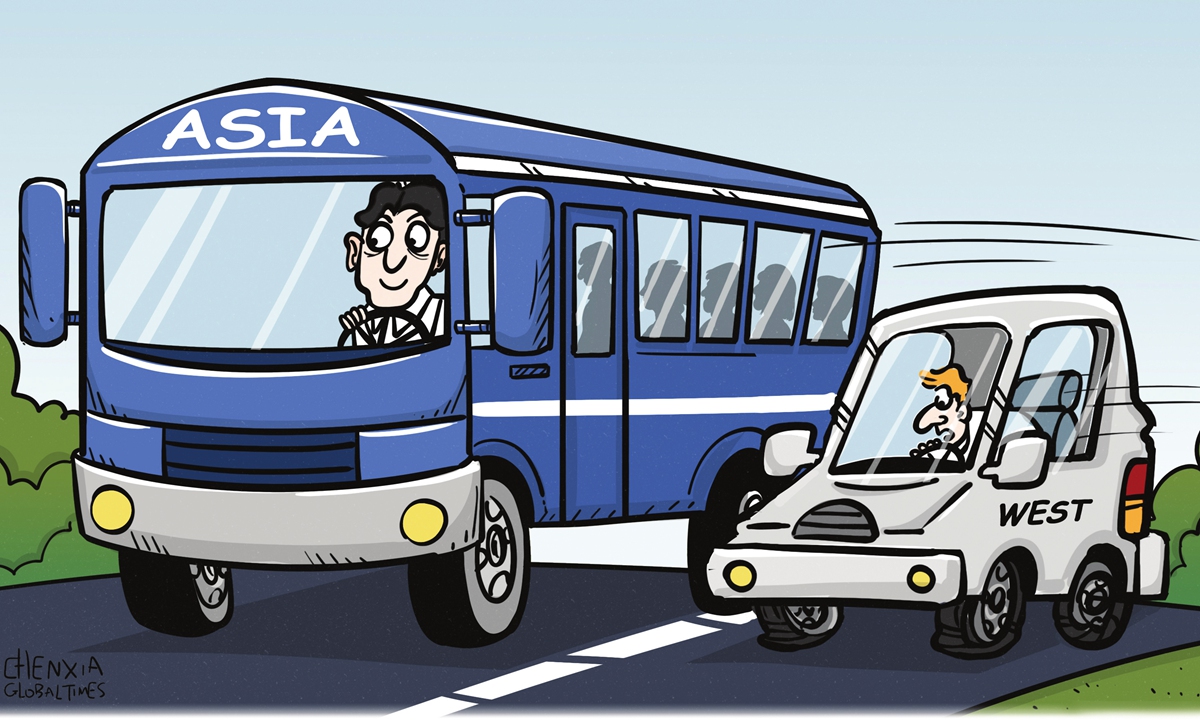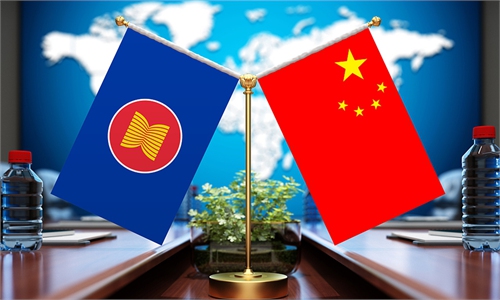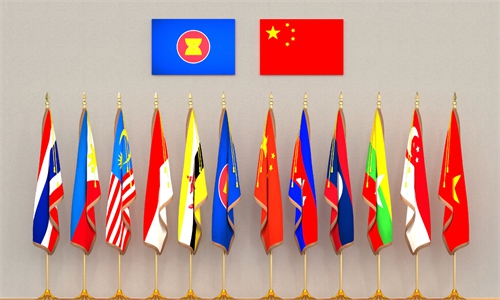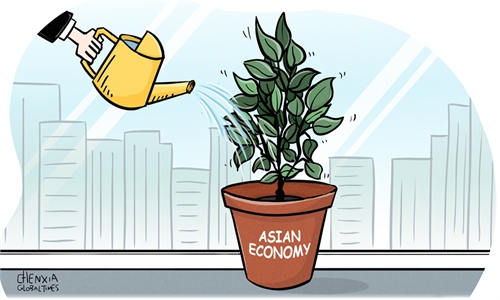
Illustration: Chen Xia/GT
Editor's Note:Profound changes are taking place in the world today. In the old Euro-American centers of global economic activity, there is a deepening crisis of decline and political dysfunction as working people find themselves facing rising challenges to their livelihoods and material security. Elites in the United States and its formerly prosperous allies are increasingly fearful of losing the power and privileges they have enjoyed for many years. The impending crisis of environmental stress and climate change pose challenges which cannot be met within the established parameters of the capitalist system still dominant in the North Atlantic world. The devastations of the COVID-19 pandemic, which has killed millions in these societies where profits come before people, have highlighted other problems of these faltering social and political systems. Meanwhile the American pursuit of NATO expansion has provoked a war which further intensifies market disruptions and food and energy supplies.
In contrast, China and other countries across much of Asia are facing brighter prospects for the future. Shared efforts to promote development around the region have allowed the lives of ordinary people to continue to improve, and while recessions threaten the old industrial and imperial centers of the West, economies are growing, not only in China but throughout Southeast and South Asia as well. This has led many observers to invoke the idea of an Asian Moment, a shift in the positive dynamics in world affairs from the former core of America and European countries to the rising tide of Asian society. How can we best understand the transformations taking place?
A fundamental restructuring of the global economic and geopolitical order is ongoing. The existing pattern of world affairs, in which the industrial economies of Western Europe and North America were at the core, was based on the monopoly over advanced technologies of production and the military power attendant upon that which they held from the early 19th century on. The Industrial Revolution, beginning in Britain at the turn of the 19th century and spreading to other parts of the Atlantic region over the following century, gave those countries the capacity to produce a wide range of commodities in much greater volume and at much lower unit costs than had been previously possible. This, in turn, created a powerful need for sources of raw materials and for markets to absorb the products of factories and workshops being generated in volumes far beyond the ability of local consumers to absorb.
Industrial technology also gave the Western powers the ability to project military force in new forms and over great distances, enabling them to impose upon much of the rest of the world a political and economic system of imperialist domination and exploitation which extracted wealth from the labor of hundreds of millions of workers and grossly enriched the elites of the metropolitan states. The domestic economies of societies in Asia, Africa, and Latin America were subordinated to the needs and interests of Western capital, and the global distribution of wealth was transformed into impoverishment of the many and great wealth for the master of colonial and neo-colonial rule.
This epoch in modern history began to change with the revolutions and struggles for national liberation which led to the creation of socialist countries and the independence of colonial subject peoples throughout the course of the 20th century. The monopoly on modern technologies of production was broken by the Soviet Union, which pursued its own path of industrialization, and by the emerging economies of China and other countries freed from the domination of Western imperialism. As advanced production capacity grew in the late 20th and early 21st centuries the balance of economic power shifted, with the old core of Europe and America relinquishing their central role as new areas of production emerged from China to Brazil, Southeast Asia, India, and other lands.
The old powers still seek to retain their dominant role in world affairs, and the aggressive campaigns waged by America against China and the Euro-American program of expansion and containment of Russia demonstrate. But these efforts are bound to fail, as the long-term dynamics of global reconfiguration continue to play out. We see in the world today not just an Asian Moment, but the beginning of a new era, in which the countries of Asia, with China at this point playing a leading role, return to the place of prominence which they held for so many centuries prior to the brief age of Western imperialist ascendancy.
The Asian Moment is one of hope and promise for a better world, not just for the peoples of China and Asia, but for ordinary working people around the planet.
The author is professor of East Asian and global history at New Mexico State University. opinion@globaltimes.com.cn



